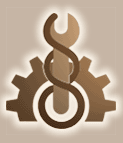 |
 |
 |
An Analysis of Job Stress in Coal Mining
|
Book : An Analysis of Job Stress in Coal Mining Author : * -- Language : English Library : Health-Safety-Environment Publish Place : Ohio Publish Date : May 1977 Publisher : U.S.Department of Health,Education,& Welfare Original Language : Turkish Book Type : Book Book Number : 5270 |
 |
INDEX
TABLE OF CONTENTSAbstract..............................................................
List of Tables....................................................
List of Figures.....................................................
Acknowledgements...................................................
Chapter 1. Introduction ..........................................
Chapter 1 I , Methods. ,..,..,....,..................,,..,.,...........
Sample........,......................................
Sampling Pairs of Mines...........................
The Stress Response Sample........................
Measures.............................................
Selection of Indices..............................
Methods of Analysis...............................
Chapter III. Results: Socio-Demographic Characteristics of the
Sample..................................................
Occupational Envi ronment (Stress) vs. Safety
Sample Character! st i cs...............................
The Occupational Environment Stress Sample...........
Chapter IV. Results: Examination of Predictive Stressors and
of Strain Responses Among Mine Employees................
Predictive Stressors: Comparison between High and Low Accident Mines...................................
Occupational Related Psychological Strains: Comparison between High and Low Accident Miners.......
Comparison of Job Stress and Psychological Strain between Underground Coal Miners and Foremen, and Comparison between Age Groups........................
v
Stress and Strain Differences between Age-related groups. .,..,..,............,.,..,.,,..,.;
Differences in Job Stress and Strain between Underground Miners and Foremen...................
Comparison of Occupational Stress and Strain between Miners and Blue-Collar Workers..............
Underground miners vs. Blue-collar workers....,..
Mine foremen vs. Blue-collar supervisors.........
Summary................................,............
Chapter V. Results: Interpretation of the Relationship between
Job Stress and Occupational Strain.....................
Direct Relationships of Job Stress to Work Satisfaction and Psychological Strains,..,...............
Dissatisfactions with the Job....................
Affective States and Somatic Complaints..........
Reexamination of the Consequences of Job Stress on Occupational Strains of Coal Miners,...........
Determining Underlying Patterns of Job
Stress and Occupational Strain...................
Comparison of Miners in Mines Reporting Higher and Lower Accident Level Statistics..............
Chapter VI. Results: Examination of Relationships Between Occupational Stress and Strain and Reported Illness.......... I
Relationships Between Occupational Strains
and Physical Health.................................
Indirect Evidence of Occupational Strain: Medication Use, Health Assessment, and Age.....................
Chapter VII. Summary and Conclusions................................
Purpose and Procedures of the Study....................
Sample Differences Between Mine Employees by
Occupational (Job) Site................................ I
Examination of Miners Responses to Job Stressorsand Psychological Strains..................................
vi
Comparison between Underground Miners and Blue-Collar Workers In Other industries.,,.,,,..,,..
Differences Between Miners and Their Foremen........
Differences Between Younger and Older Underground Miners..............................................
Occupational Strain in Relation to Job Stress Among Underground Coal Miners...................,.........
Modelling Occupational and Psychological Strains Among Underground Miners............................
The Relationship of Job Stress and Psychological Strain to Health and Illness Among Underground Miners..............................................
Limitations of the Findings.........................
Summary of the Major Findings.......................
Implicat ions........................................
References...........................................................
Appendices
A. Description of Measures of Occupational Stress, Personali ty, P-E Fit, Psychological Strain;& IIlness.
B. Intercorrelation Among Predictor Variables and Among Psycholgoical & Somatic Strains (underground miners")..
C. Correlations Between Selected Strains and the E,P, and P-E Fit Measures.................................
D. Distribution of Jobs Among Underground Miners, by Accident Index and Age...............................
E. Comparison of Stressors and Strains Between Miner Stress Study and National Normative Data.............
F. Ordinary Least Squares Estimation of Structural
Equations for High and Low Accident Underground Employees and for Total Underground Miner Sample.....
G. Reported Health Disorders in Relation to Mine Accident Envi ronment.................................
LIST OF TABLES Table 2-1 Distribution of Characteristics for Matched-Paired Sample.,*,,.
2-2 Measures of Demographic Characteristics, Subjective Environment (stress), Personality, P-E Fit, Psychological Strain, Health Related Behavior, and Reported I I Inesses........................,
3-1 Selected Socio-demographic Characteristics of Mine Labor
Force Sample.........................,.,............. ,...........
3-2 Selected Work Schedule Attributes, by Job Classification
(Percentages)..............,..,..,,....,.........................
3-3 Genera! Job Classification Per 1000 Employees
by Type Mine and Age.........,..,....,.....,.,...................
4-1 Comparison of Person-Environment Fit Stressors, by Job and
Accident Type........,,.,,.,......,»..,...............,..........
4-2 Comparison of Predictor Stressors, by Job and Accident Type......
4~3 Comparisons of Dissatisfactions with Job, Affective States,
and Somatic Complaints, by Job and Accident Type.................
h~k Comparisons of Person-Environment Fit Stressors, by Miner's
Age and between Underground Miners and Foremen.-.................
4-5 Comparisons of Predictor Stressors, by Miner's Age and
between Underground Miners and Foremen...........................
h-6 Comparisons of Dissatisfaction with Job, Affective States, and Somatic Complaints, by Miner's Age and between Underground Miners and Foremen........................................
5-1 Rotated Factor Pattern Matrix for Job Stress and Occupational
Strains..........................................................
5-2 Scoring Coefficient Matrix for Job Stress and Occupational
Strains..........................................................
5-3 Correlation Coefficients Among All Underground Miners For
Constructed Job Stress and Strain Variables......................
5-4 Means and Standard Deviations for Low and High Accident
Level 1 M i nes.............,........................................
5-5 Comparison of Correlation Coefficients Among Scaled Stress and
Strain Variables for High £ Low Accident Mine Environments.......
vi i i
6-1 Reported Selected Health Conditions Experienced In Past
6 Months Among Underground Miners.........,,,,,,,,.,,,«,,,,.
6-2 Potnt-Biserial Correlation Coefficients for Constructed
Indices of Job Stress and Strain, by Grouped Health Problems Reported by Underground Miners.....,........................
6-3 Point-Biserial Correlation Coefficients Between Occupational Stress and Strain and Grouped Health Problems Reported by Underground Miners.......................................
6-4 Correlation Coefficients for Grouped Health Problems, by Underground Miner's Reported Use of Medication, Personal Health Assessment^and Chronological Age..................
6-5 Correlation Coefficients for Constructed Indices of Job Stress and Strain by Underground Miner's Reported Use of Medication, Personal Health Assessment, Inequity in Pay, and Chronological Age.......................................
List of Figures
Figure
5-1 Interpretation of Major Correlations Between Stresses and Psychological Strains for Underground Mine Workers......
5-2 Analytical Model of Major Relationships


